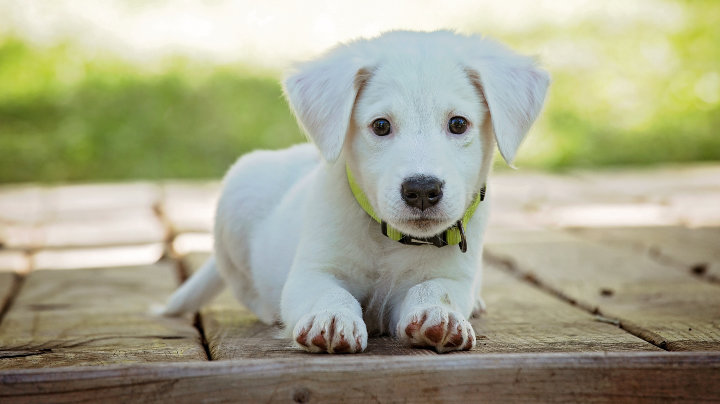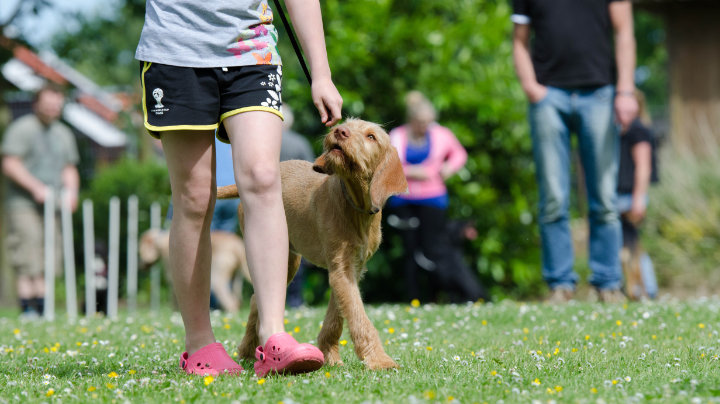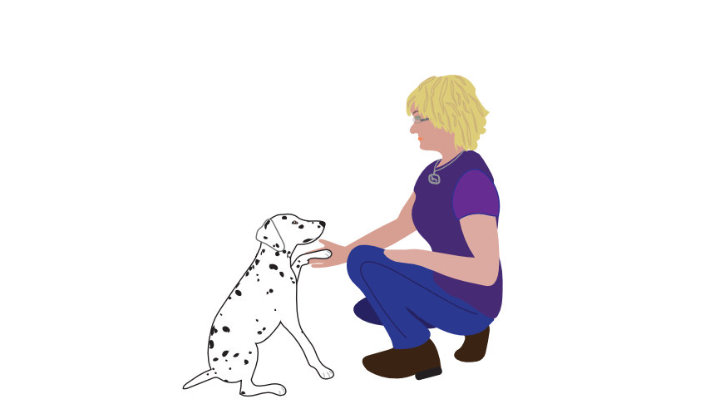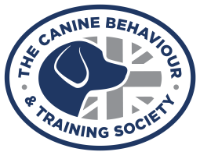 Do you have a diary date to visit your vet for tranquilizers for 5th November? If only it were that easy. It used to be that fireworks night only lasted a couple of days but now fireworks are bigger and louder and seem to go on pretty much from October through to January, not to mention summer bar-be-que fireworks as well! It is no longer practical to medicate dogs for fireworks night as they would need medication for several months!
Do you have a diary date to visit your vet for tranquilizers for 5th November? If only it were that easy. It used to be that fireworks night only lasted a couple of days but now fireworks are bigger and louder and seem to go on pretty much from October through to January, not to mention summer bar-be-que fireworks as well! It is no longer practical to medicate dogs for fireworks night as they would need medication for several months!
Luckily, however, it should not be necessary to sedate your dog for fireworks night. Even in older dogs it is possible to rehabilitate them so that they no longer have a fearful response to fireworks.
How, I hear you ask!
Well, let's start with prevention (I cover this in my puppy foundation classes). To do this we need to understand a little bit of science.
Puppy Socialisation period
The critical period for puppy socialisation is the first 12 weeks of its life. During this short phase it is imperative that we introduce our puppies to all sorts of things. When those things are living (e.g other dogs, people, cats etc.) this process is known as socialisation; when those things are objects (e.g. milk floats, carrier bags, walking sticks etc.), this is known as habituation. Or, a more general term that covers both is social referencing.
When a puppy is about 3 weeks old they start to become more aware of their surroundings; their eyes and ears open. At this time the hazard avoidance behaviour starts to develop. By 12 weeks of age this has pretty much closed. Hazard avoidance means that puppies start to become suspicious of new things. Once the window has closed it becomes more difficult for pups to experience things without some degree of fear. Before this time, they tend to be more accepting of anything they see, hear or experience. In human terms this is a bit like the two year old child flying down a steep ski slope with the ski tips tied together! They know no fear, although everyone else older than three years old quakes at the thought of tied ski tips!
Prevention of problems
If a puppy were to stay with its canine group it would get a different response to its behaviour than it does living with a human family. E.g. If the dogs were out in a group and they heard a loud bang the puppy would startle. They would probably all startle initially but the older dogs by now would have realised that generally a loud bang means nothing, no harm comes of it and they would carry on about their business. The puppy would look at the rest of the group and think "Ok, they're not worried, so I'm not worried" and that would be the end of that. The next time the puppy hears a bang, he will probably still jump (don't we all if it's unexpected) but next time he will have built up his own idea of safety history. E.g. Last time it was safe, so this time I'm not worried.
However, in a human group, we tend to behave differently. If our puppy startles and you look terribly worried about your pup's response and behave abnormally and panicky, your pup may feel that this bang is something to be afraid of. So, in this case, the puppy does not build up a safety history and each time they experience the bang noise they may become more reactive towards it. Sadly this behaviour can generalise rather quickly to other noises. So, usually when I see a firework phobic dog, the dog has other noise phobias too. Very quickly the dog's life can become miserable. I have known dogs to be euthenased because they can't cope with life any more due to generalised phobias of this kind.
It is totally acceptable (contrary to popular opinion) to calmly reassure your dog. Providing comfort and calm reassurance can help your dog to be less worried. Anything that reduces their fear during fireworks is good. But don't be dramatic about it, just be normal so your pup can normalise his response.
It's a good idea to expose your puppy to different sounds when they are very young. Introduce one sound at a time and start off with it being quiet, gradually building the volume. This way puppies can habituate (ignore) all sorts of noises that otherwise they might become scared of. There are some good sound effects APPS about these days you can use, or download free soundbites from the internet to be played on an I phone in different places. Vary where you play these or your pup will quickly learn the noises are OK as long as only played in the sitting room and coming from the noticeable speaker.
So, to summarise, if you want to prevent firework and noise phobias in your dog then you need to make sure you carefully introduce your young puppy to a variety of sounds in a way that does not elicit fear. Do not react in a panicky way when they show a startle behaviour. Just carry on calmly, just like the canine group would do and try to get your dog doing an activity he enjoys (stroking, eating, playing) so that he can make positive associations with loud noises.
Resolution of problems

Mild phobias
Any dog that shows abnormal fear should be seen by a vet to check them over. There is a known link between pain and noise sensitivities.
If your dog has a mild noise phobia then this can usually be addressed by you with a little bit of guidance and common sense.
Using sound effects APPS or downloads from the internet, played at a very low volume you can start to desensitise your dog to the problem noise. A good way to do this is to ensure that your dog is relaxed before you start to play the sound. Start to play your dog's favourite game and then turn on at a very low volume. Over days and weeks, gradually increase the volume until it is audible but your dog is not reacting. Keep playing with your dog and have great fun. Repeat this regularly, gradually increasing the volume over time. Always start with the volume lower then the volume you last worked with on the previous session. Over time your dog should be desensitised and should learn to associate pleasant things with the aforementioned noise. Make sure you vary the playing order and the location, use an I Pod with portable speaker.
Severe Phobias
If your dog has severe and generalised noise phobias then I strongly recommend seeking the advice of a professional Clinical Animal Behaviourist listed on the Animal Behaviour and Training Council. It is likely that veterinary intervention combined with behaviour counselling will be required. However, in the right hands it should be possible to work through this problem.
A few years ago I dealt with a case in which severe generalised noise phobias combined with severe separation anxiety had been ongoing for 8 years. Within three months this dog was able to accept being left alone and cope with all the noises which had previously unsettled him. The drug intervention was stopped after four months with no regression. However, since this dog was so totally distressed prior to treatment it was necessary to use medication in the short term to help him to be able to learn the alternative coping strategies which we taught him in the end. He and his family are now very happy. So, your dog may also respond to therapy and don't rule him out because you think he's too old.
Short Term Options
If firework night is upon you and you have not been able to resolve your dog's firework phobia then here are some suggestions on how to make his life a little easier.
Make sure you take him out for his walk in daylight so he should not encounter fireworks whilst outdoors. His last outing should be after all risk of fireworks has passed. Make sure he has had an active day so that he is tried and relaxed.
Keep him inside during darkness hours and try to keep your windows and curtains shut. Play white noise (TV, classical music).
Provide him with a safe place to den. This should be created well in advance of fireworks night so that it is an established safe place for your dog. This can be a large cardboard box with blankets inside so that he can be comfortable and the sound of fireworks will be muffled. You may find he prefers to hide behind the sofa, so let him do that. Play some background noise to mask the firework noise. BE AWARE THAT LAMINATE FLOORS AND CONSERVATORIES AMPLIFY SOUND. THESE ARE NOT SENSIBLE FOR NOISE PHOBIC DOGS. If you have laminate floors then try to put rugs down on the floor in your dog's safe space. This should reduce noise volume.
Ideally you should see your vet for some medication to help him. there is now a wide range of tactical medicines to help. Try to avoid sedatives like ACP as this may not actually help him feel better but it will prevent him from being able to utilise any coping mechanisms. (To understand, imagine yourself in a room full of whatever scares you most. Now imagine you have been sedated and can't get out of the room! Doesn't feel good does it?). You could try ADAPTIL plug ins or sprays (Dog Appeasing Pheromones which are designed to make him more relaxed naturally.These are available from your vet). Your vet will be happy to discuss other nutri-ceuticals on the market. Drugs from the benzodiapeine group are effective as they can also help the dog forget the unpleasant experience. I once had root canal surgery on a tooth. I was so traumatised the dentist prescribed a benzodizepine. To this day I cannot remember the procedure. These drugs are only available on prescription from your vet, so plan in advance. Alprazolam can promote amnesic effects even if you give it to your dog half an hour after being exposed to something scary.
Remember that fireworks displays may be shown on the TV, so remember to keep the volume low so as not to frighten your dog.
It is fine to cuddle your dog. Cuddling soothes, it increases a hormone called oxytocin which is a bonding hormone also known to help combat stress,
All in all, it really is much easier just to help him to deal with fireworks permanently isn't it?
If your dog suffers from noise phobias you need to start dealing with this about 6 months prior to fireworks night. So, June is the latest time you should be starting to help him to cope with November 5th!
If you require more information on this subject please contact me or telephone me on 01202 861340 or 07764 250554.












